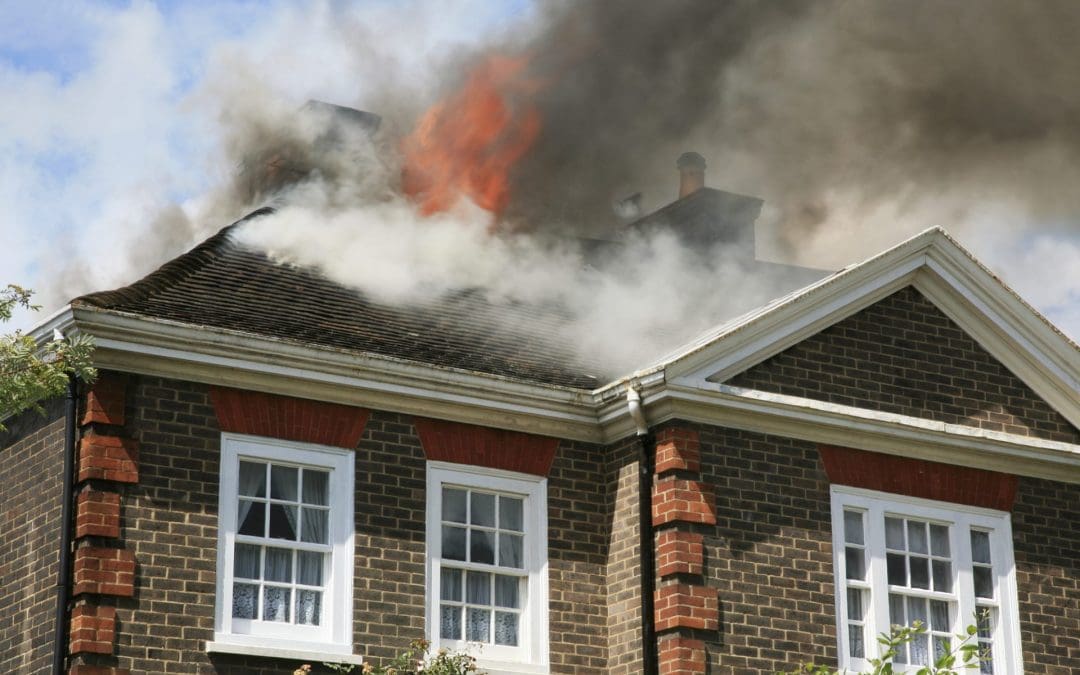House fires can be devastating, causing significant property damage, injuries, and even loss of life. However, many house fires are preventable with proper precautions and awareness. By implementing some straightforward safety measures, you can significantly reduce the fire risk in your home. This post will discuss essential tips and practices for preventing house fires to keep your home safe.
Kitchen Safety for Preventing House Fires
The kitchen is one of the most common places for house fires to start, often due to unattended cooking. To prevent kitchen fires, always stay in the kitchen while cooking, especially when using the stove. If you need to leave the room, turn off the stove. Keep flammable objects like kitchen towels, paper towels, and curtains away from the stove. Regularly clean the stove and oven to prevent grease buildup, which can ignite. Keep a fire extinguisher in the kitchen and know how to use it.
Electrical Safety
Faulty electrical wiring and appliances are another leading cause of house fires. Regularly inspect your home’s electrical system, including outlets, switches, and cords, for signs of wear or damage. Avoid overloading outlets and extension cords, and never run cords under rugs or furniture, as this can cause them to overheat. Use appliances according to the manufacturer’s instructions and unplug them when not in use. Contact a licensed electrician immediately if you notice flickering lights, burning smells, or sparks from an outlet.
Heating Equipment
Heating equipment, such as space heaters and fireplaces, can be a significant fire hazard if not used properly. Keep space heaters at least three feet away from anything that can burn, including furniture, bedding, and curtains. Always turn off space heaters when you leave the room or go to bed. Use a sturdy screen for fireplaces to catch sparks and keep flammable materials away. Have your chimney inspected and cleaned annually by a professional to prevent creosote buildup, which can ignite.
Preventing House Fires as a Smoker
Smoking is a common cause of house fires, mainly when cigarettes are not properly extinguished. If you smoke, do so outside whenever possible. Use deep, sturdy ashtrays and make sure cigarette butts are completely extinguished before disposing of them. Never smoke in bed or when you are drowsy, as you might fall asleep with a lit cigarette. Additionally, keep lighters and matches out of reach of children to prevent accidental fires.
Candle Safety and Preventing House Fires
Candles add a pleasant ambiance to your home but can be dangerous if left unattended. Always place candles on a stable, heat-resistant surface and keep them away from flammable materials like curtains and papers. Extinguish candles before leaving the room or going to bed, and never use candles if you have oxygen tanks in the house. Consider using flameless LED candles as a safer alternative.
Smoke Alarms and Fire Extinguishers
Smoke alarms are crucial for fire prevention and early detection. Install smoke alarms on every level of your home, inside bedrooms, and outside sleeping areas. Test alarms monthly and replace batteries at least once a year. Replace smoke alarms every ten years or as recommended by the manufacturer. In addition to smoke alarms, keep fire extinguishers in key areas like the kitchen, garage, and near fireplaces. Familiarize yourself with how to use them and ensure everyone in your household knows their locations.
Create an Emergency Plan
Preparation is vital in case a fire does occur. Develop a fire emergency plan for your household, including escape routes from each room and a designated meeting place outside. Practice your plan regularly with all members of your household. Teach children how to escape on their own in case you cannot help them, and make sure they understand the importance of not hiding during a fire. Also, ensure everyone knows how to call emergency services.
Preventing a house fire requires a combination of vigilance, regular maintenance, and preparedness. By following these safety tips and educating your household members, you can create a safer living environment and reduce the risk of fire. Remember, taking proactive steps today can protect your home and loved ones from the devastating effects of a house fire tomorrow.
Fire Prevention FAQs
What are the most common causes of house fires?
The most common causes of house fires include unattended cooking, faulty electrical wiring, heating equipment malfunctions, smoking indoors, and candle mishaps. These sources can be easily mitigated with proper safety measures and awareness.
What should I do if a small fire breaks out in my home?
If a small fire breaks out, use a fire extinguisher if you are confident in using it safely. For a grease fire, cover the pan with a lid to smother the flames and turn off the heat. Never use water on a grease fire. If the fire is uncontrollable, evacuate the house immediately and call emergency services.
How can I safely store flammable materials in my home?
Store flammable materials such as gasoline, paint thinners, and cleaning products in their original containers in a cool, dry place away from heat sources. For larger quantities, use safety cabinets and always follow the manufacturer’s storage instructions.

